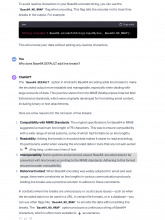Fixes ENG-6031. It appears that ThumbhashModule sometimes returns base64 string containing newlines, which causes issues during encryption. More details in the linked issue description.
Even though still not sure if Android code is supposed to return base64 string with newlines, I decided to fix it by simply stripping them in JS. This is more future-proof than experimenting with native flags for base64 encoding.



